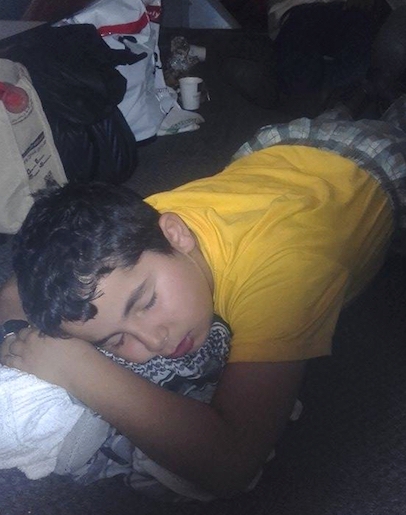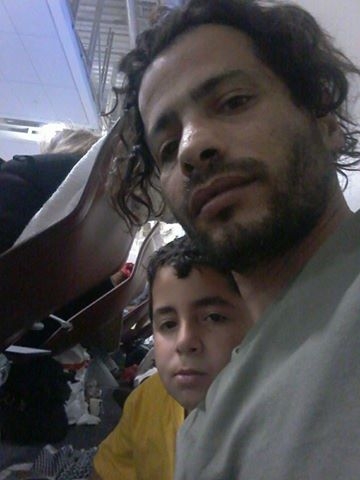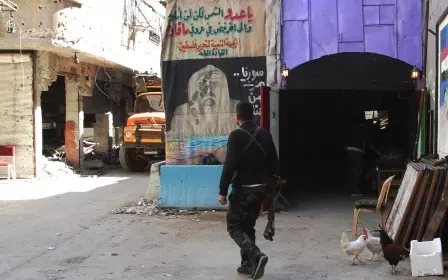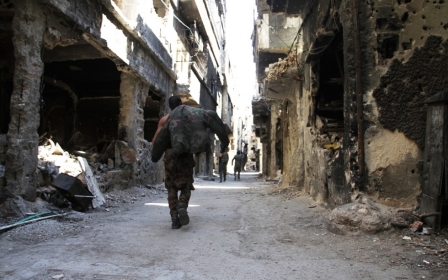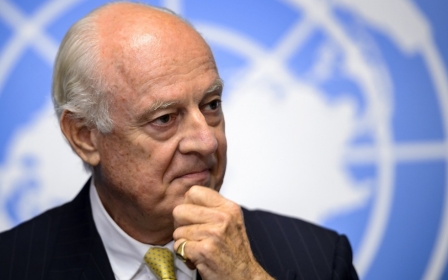Palestinian father and son, in limbo at UAE airport, fear return to Syria
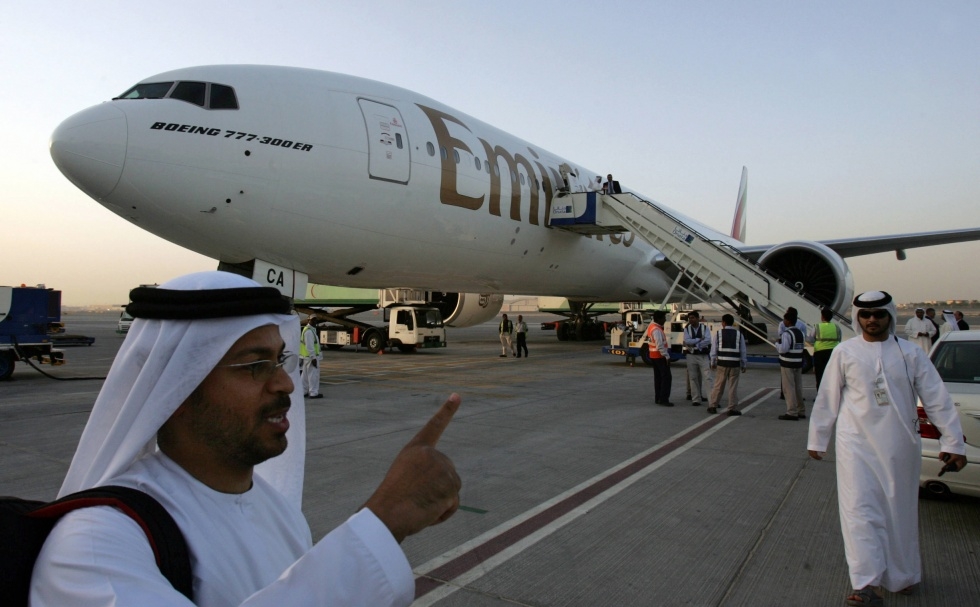
A Palestinian refugee from Yarmouk Camp who says he is wanted by the Syrian government has been stuck at an airport in UAE for over two weeks after being denied entry to several Arab countries, Middle East Eye has learned.
Speaking via telephone Wednesday, Wael al-Sahlee, 41, told MEE that he and his nine-year-old son have been in limbo at the Dubai International Airport for 15 days, and that the Emirati authorities have threatened to send them back to Syria.
"I was doing humanitarian work, giving medical attention to people [in Yarmouk Camp in Damascus], but the [Syrian] regime accused us of aiding terrorists,” Sahlee said.
“A number of my Palestinian compatriots were arrested by the regime for helping people. Many of those who were arrested died under torture in regime captivity. So I thought that I better escape after watching my friends getting killed one by one, and I myself was detained for a month.”
Sahlee fled Yarmouk - a Palestinian refugee camp that has been besieged by the Assad regime for over two years - for Jordan in 2012, he told MEE. But after two and a half years of living in Jordan without a residence permit, the authorities forced him to leave.
“I was not allowed lawful residence. The Jordanians require a sponsor for Palestinians; they fear a change in their demography. They'd say: ‘We already have three million Palestinians, we don't need more.’ There are 10,000 Palestinian refugees that came to Jordan from Syria, but they are not officially recognised by the Jordanian government,” he told MEE.
Sahlee and his son flew to Sudan (with a stopover in Dubai). He planned to travel from Sudan to Libya, and then to risk a journey across the Mediterranean Sea to Europe “to try to secure a future for my children”.
But the Sudanese authorities would not grant him an entry visa. They sent him on a plane back to Dubai.
Stuck in Dubai airport and unable to return to Jordan, Sahlee contacted the UN agency for Palestinian refugees (UNRWA), in hopes of securing a visa in another country. But none of the Arab countries they have contacted has granted him a visa. He is afraid of being forcefully returned to Syria.
"The authorities in the airport said if I don't decide to go anywhere they would have to send me back to Syria via Lebanon,” Sahlee told MEE. “There was a young [Palestinian] man who stayed in the airport for 11 days, then they (the airport authorities) flew him to Lebanon, where the authorities there drove him to the Syrian border and handed him over to the Syrian government."
Prior to the civil war in Syria, around 570,000 Palestinian refugees lived in Syria, some of them originally from historic Palestine and others of them descendants of Palestinians who were forced to leave their lands during the Arab-Israeli wars of 1948 and 1967.
According to UNRWA, since 2011 at least 80,000 of these Palestinians have been forced to leave Syria due to the turmoil in the country. They have once again become refugees.
Sahlee says his situation is part and parcel of this Palestinian condition of statelessness.
“You know what it's like for Palestinians, all the horizons are shut. There is nowhere to turn,” he said.
He and his son can’t even find a bed, much less a state.
“My son has not had a bath or a change of clothes for 15 days. Why? We're like beggars as passengers pass by. Every time I feel unwell, they send us an ambulance, giving us medicine, but never take us to a hospital,” Sahlee said.
“I wish they'd put me in a room, a hotel. I'm prepared to pay.”
Middle East Eye propose une couverture et une analyse indépendantes et incomparables du Moyen-Orient, de l’Afrique du Nord et d’autres régions du monde. Pour en savoir plus sur la reprise de ce contenu et les frais qui s’appliquent, veuillez remplir ce formulaire [en anglais]. Pour en savoir plus sur MEE, cliquez ici [en anglais].


